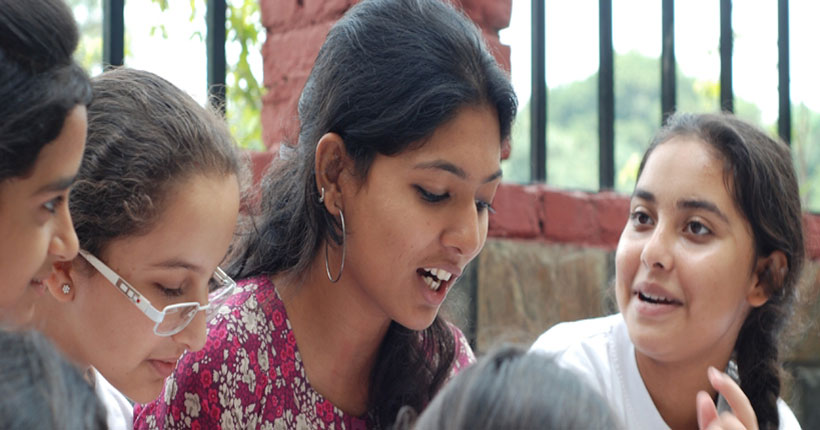
Summer Valley School recognizes that the emotional health is of paramount importance and that a student cannot achieve his/her full potential if he/she is not feeling good or happy.
Identifying this, the school has since 2000, had Shishya Society, conducting weekly Lifeskills classes at different levels. At present, weekly Lifeskills classes are a part of the time-table for class 9 and 11; while classes 10 and 12 have one class every month.
The curriculum, ranging from short 6 week courses to an extensive 2 Year course covers an array of issues; from Relationships, Choices, Self - Esteem, Feelings.
Purpose
The purpose of the curriculum is Self Empowerment of students to make value based choices in life and to build relationship with students through modeling love and care.
We realise that the students are confused. In different areas of life, there are misconceptions and distorted perspectives when it comes to making choices.
Often, children many end up in a mess. There needed to be a way in which the students could empower themselves to make Right choices. And that can happen when they have already worked out their perspectives! The Life skills classes achieve the same.
Methodology
Self empowerment is the goal, each session is structured in a way that opens up the issue being worked out. The classes are highly interactive with students encouraged to share their perspectives and learn from each other's perspectives. The Lifeskills facilitator moderates the class and ensures that relevant perspectives are being highlighted, challenging students to think.
The facilitator brings in Facts and logical truths into the discussion giving students food for thought.
Role-plays, activities, games and group work form a key part of the Life skill classes, making it to be oriented towards students, allowing for fun and excitement. Classes are held once a week with the same class, giving students time to think through the perspectives they have been challenged with.
Often, the facilitator gives them a 'life assignment' for the week. The method of the classes makes it highly dynamic and ever evolving, providing opportunities for the facilitators to learn and adapt.
One on one Counseling
The Lifeskills facilitators are also trained in non directive counseling. As they build relationships and trust with the students, many choose to share their personal struggles.
There is a glaring need for student friendly and approachable people from whom students can seek counseling during tough times. The facilitators, through teaching in class, are able to build credibility and trust, often taking months, in some cases, years to come and 'Talk'. One of the main ways in which students empower themselves is during these one on one sessions.
The facilitators spend a large amount of time 'hanging out' in the fields during the breaks and the staff room during free periods, making their availability known to the students. More and more students are choosing to talk!
Parent's workshop
It has been our experience that teenagers are under many pressures emotionally as well as academically. To cite a few factors, insensitive parenting, peer pressure, hormonal changes, media (with particular reference to internet), pressure to perform well in studies and so on. Pressures thus generated adversely impact the students' performance on all fronts including academics.
To provide a better environment for your child, the school and Shishya Society launched the first ever programme: "Partnership in Excellence".
Series of workshops are conducted for parents. These workshops are designed to develop awareness, partnership and support to the parents, in context to the many crucial concerns of the adolescent child. These workshops are held in a congenial interactive environment with the class teacher, facilitators from the Shishya Society and other experts.
Objectives of Parents' Workshop:
The focus of the workshops is:
1. Define vision for our children
2. Address obstacles and issues like addiction to internet & games, Boy-Girl relationships, fighting & anger management, puberty and its effects, self discipline and responsibility, self study, pocket money etc
3. How to make your teenager talk to you? Develop listening skills & address relationship building skills in context of the vision that parents have for their children.
